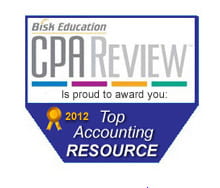10 Highlights of Warren Buffett’s Letter to Shareholders
Ten highlights of Warren Buffett’s Letter to Shareholders:
(1) Berkshire’s Class A shares closed Friday at $343,499, up 1.1% for the year. In contrast, the S&P 500 is up 3.3% this year. Berkshire’s stock rose 11% in 2019 compared with a 31.5% total return in the S&P 500, including dividends—Berkshire’s biggest underperformance since 2009. Berkshire’s compounded annual gain from 1965-2019 (55 years) equals 20.3%, which is more than double the 10.0% compounded annual gain for the S&P 500. Buffett dropped his usual discussion of book value. When Berkshire realizes capital gains, it pays a federal tax rate of 21%. (Note: Berkshire would have “79 cent dollars” to reinvest on realized profits which would have to appreciate by 27% to recover their pre-tax value.)
(2) Reinvesting retained earnings in Berkshire’s businesses will result in substantial growth over time (“compound interest”). Berkshire’s cash position equaled $128 billion at year end 2019. This represents 23% of its market capitalization of $560 billion. Berkshire’s biggest deal in 2019 was a $10 billion deal in Occidental Petroleum (8% preferred stock and warrants to purchase common stock) to assist its bid to acquire Anadarko Petroleum Corp. Some of Berkshire’s 60-odd subsidiaries spent $1.7 billion on bolt-on acquisitions in 2019 up from $1 billion the prior year.
(3) Berkshire seeks to buy businesses that meet three criteria: (1) they must earn good returns on the net tangible capital required in their operation, (2) they must be run by able and honest managers, and (3) they must be available at a sensible price.
(4) Berkshire prefers to buy 100% ownership of businesses, but otherwise will buy large, but non-controlling positions in publicly traded companies that meet its standards.
(5) Questions at the annual meeting may now be addressed to Greg Abel and Ajit Jain, in addition to Warren Buffett and Charlie Munger. There will no longer be three analysts on the stage asking questions.
(6) Berkshire posted a 23% decline in operating earnings of $4.4 billion, down from $5.7 billion a year earlier, due to lower results in insurance underwriting and some of Berkshire’s smaller operating businesses. Although Buffett stated that Berkshire’s insurance business has been the superstar. Its property/casualty business has been the engine propelling Berkshire’s growth. It has had an underwriting profit in 16 of the past 17 years.
(7) Berkshire’s common stock investments, on a weighted basis, are earning more than 20% on the net tangible equity capital required to run their businesses, and they earn their profits without employing excessive levels of debt.
(8) Stocks will outperform bonds over time if interest rates prevail close to current rates and corporate tax rates remain near the low level businesses now enjoy. “Equities are a much better long term choice for the individual who does not use borrowed money and who can control his or her emotions. Others? Beware!”
(9) People should pursue professionally what they are good at. “We are all duds at one thing or another. For most of us the list is long. The important point to recognize is that if you are Bobby Fischer, you must play only chess for money.”
(10) In 2019, Berkshire purchased $5 billion of its shares, or about 1% of the company when the “price/value discount was modestly favorable”.



